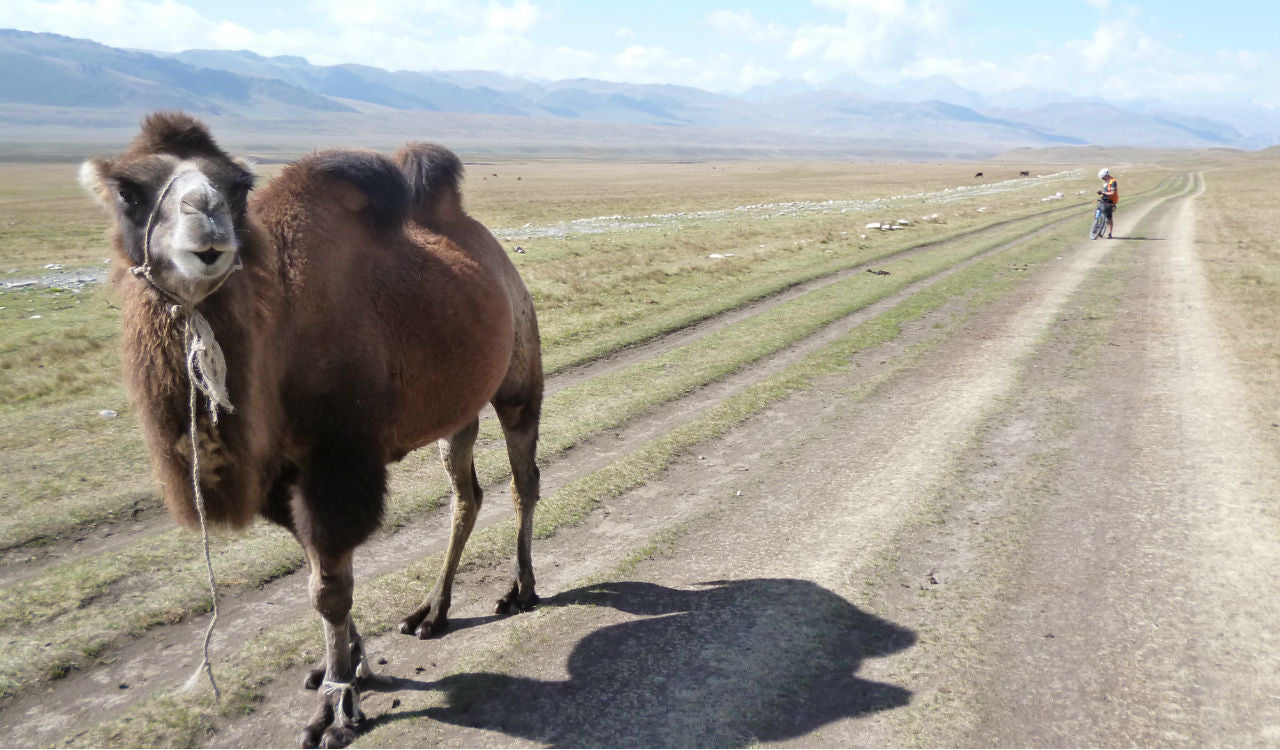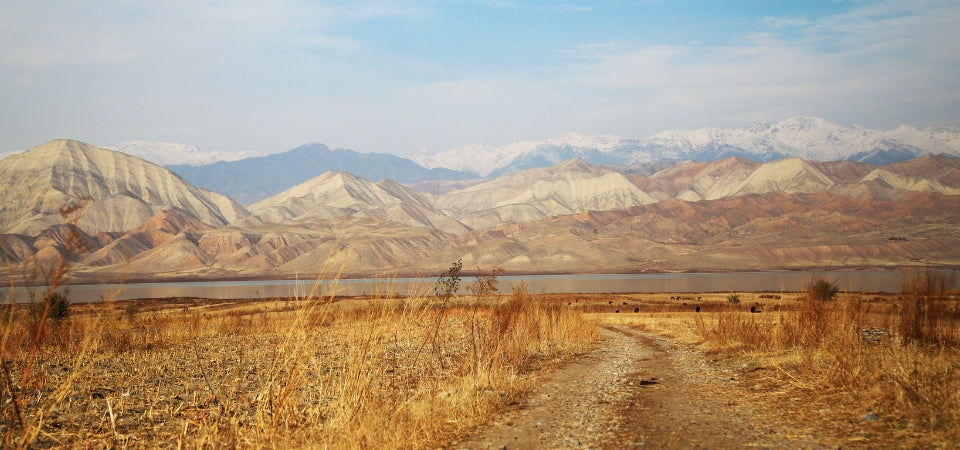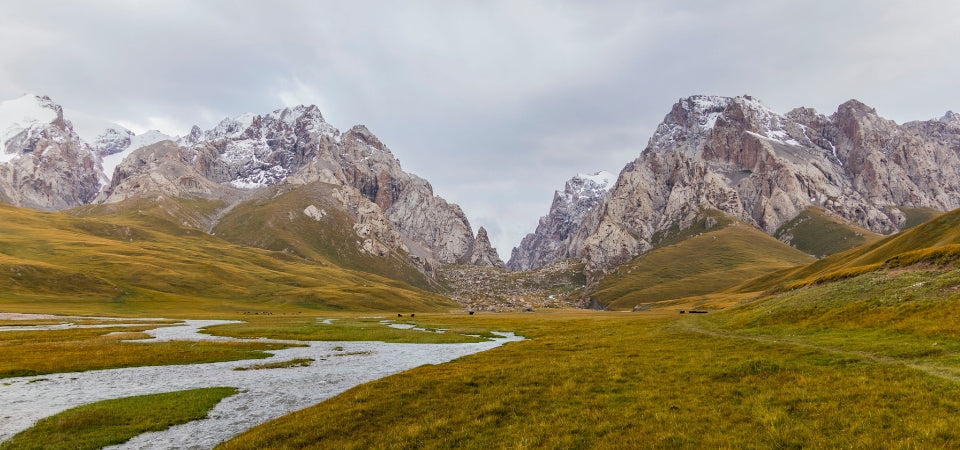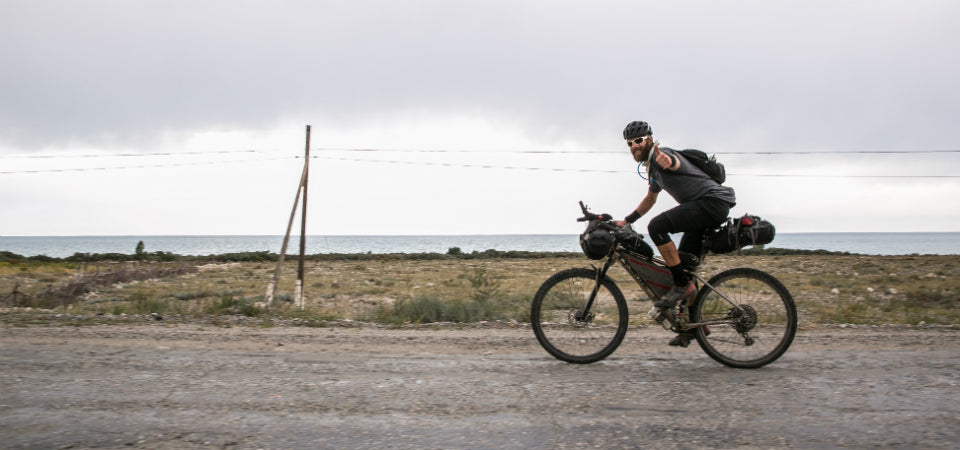
On The Old Silk Roads
Endurance cyclist Pete McNeil was among the first people to trial the 1,700-km Silk Road Mountain Race in Kyrgyzstan in its first year, #fuelledbyfirepot. He came eighth overall in a challenge so gruelling that only a third of competitors finished. Here, he recounts how he first got into cycling and what it was like to ride in what’s now being called the toughest bike race in the world. As told to Olivia Lee.
My wife and I cycled from the UK to New Zealand for our honeymoon. It took us two years and 20,000 kilometres. That was how I got hooked on adventure cycling. We pedalled slowly through the mountains, stopped for tea whenever we got an invitation, and slept wherever we could lay our heads. It was our way of presenting an alternative to the ‘heroic explorer’ — the kind of person who goes off and does what no one else can do. We just wanted an adventure, so we had one.
On our return, I was quite content with cycling round the Peak District where we lived. Soon though, feelings of curiosity started tapping away at me. It was my ego saying: how far can you go? How fast can you do it? That was when I heard about the Highland Trial Bike 550 — a gruesome 550-mile bike race in the Scottish Highlands. I’ll prove I can and then I’ll stop, I told myself. That was two years and too many races ago.
The Silk Road Mountain was interesting because it had never been done before. It sounded impossible, but also very appealing — my wife and I had passed through Kyrgyzstan on our travels and I’d always wanted to go back. I wouldn’t consider myself a serious cyclist — I don’t shave my legs or do turbo training like the pros— but I figured if I just approached it casually, with no pressure, I might enjoy it.

All 100 cyclists converged in Bishkek, Kyrgyzstan’s capital — a bustling city full of Soviet architecture. The route would lead from here into the mountain passes, where we would have to ride, hike and scramble through deserts, bogs and over some of the most brutal mountains I’ve ever cycled. I arrived the day before, but some racers had been there for weeks to acclimatise.
We set off on a cold morning. With 100 riders in a relatively cramped city, it didn’t exactly begin like a race. For the first half hour we rode behind a police escort, looping through the narrow streets as Kurdish TV crew filmed and people waved. Outside the city though, the real race began. I was suddenly gripped with the desire to win, pushing ahead as hard as I could. When I followed another cyclist in the wrong direction for 20 minutes, I cursed my bad luck.
My plan for day one was to try and get over the first mountain, but at 8,850ft, that was no easy goal. To make things worse, at 6pm, about 9,800 feet up, a heavy storm hit. Hailstones dropped like beach pebbles and lighting struck the ground all around me. I watched as other riders took shelter and realised I probably should too. Within 30 minutes of pitching my tent in the torrential rain, the storm blew over. I was frustrated, trying to make the decision between packing up again, having lost an hour for no reason, or staying put and getting some rest. I decided to sleep until midnight, then continue on in the dark.
I’m told the descent offers spectacular views, but as I pushed my bike over the peak, all I could see was the ground ahead illuminated in my torch. It was 2am and the mountains were eerily silent. It felt I was alone up there, each footstep like a thunder clap and each breath as loud as a gust of wind.
I’d done enough races to know the sleep demons would arrive at dawn. It’s a strange sensation, but it’s like when you go out all night — it feels so good until the sun comes up, then all of sudden you realise how much you want to sleep and how tired you’re going to be. To avoid that feeling, I laid my sleeping bag on the ground at 5am and fell asleep under the stars. When I awoke to the sunrise an hour later, I felt rested and ready, as if the night before had been a dream.

The landscape was stunning — blue and white mountains, golden fields, yurts tucked into the shadows. I found a steady rhythm, flowing across the land like water. I rarely saw another rider. There were moments when hours would speed by like minutes, then minutes that would feel longer than hours. In those harder periods, I listened to the The History of the Silk Road on my iPod, imagining myself traversing those old trade routes back in time.
On the third day it was my birthday and the weather was beautiful. I rolled into a small town, expecting to find racers at the cafés, but there was no one there. That was when I realised just how spaced out the race had become. I was tempted to stop and order lunch, but those little flashes of comfort can be dangerous. Once you’ve sat in a soft chair or had a hot shower, it can be agonising to tear yourself away.
At the halfway point, I began to feel very down. When you’re bike touring, you can take time to talk to people you encounter. During a race, though, you have to keep going if you want to finish. Children would run out to greet me, or invite me into their yurt, but I’d speed on past. I felt awful. I kept asking myself, why are you doing this? I wasn’t enjoying it as much as I thought I should, and I was ignoring the people whose country I was whizzing through. For a few days, I wrestled with the temptation to drop out.
I hit a turning point on the seventh day. I’d bumped into some other riders at one of the checkpoints and talked it through with them. I realised I needed to be kinder to myself — up until this point I’d been pushing ahead as if I were in it to win it, when the whole reason I’d signed up was to just try and finish.
The funny thing is, as soon as I started feeling better, good things started to happen. The harsh desert turned to lush alpine forests; the weather was just the right amount of sunshine and cloud; I found time to stop and have a drink with locals at the roadside. The riding was still hard, but it didn’t feel like a punishment anymore. I practiced mindfulness techniques as I whizzed through the trees, counting each of my breaths, deliberately noticing the wind on my face. I realised that if I wasn’t getting annoyed at my bike, or the mountains, or the race organisers, or myself, there was little else to do but enjoy it.

As the end grew closer, my focus grew stronger. I knew the only thing left was to finish. That’s life at its most simple: just you, your bike and a straight line to the end. I wolfed down the last of my food, necked two ‘emergency’ energy gels, put my headphones in and just rode. Those last 100 kilometres were liberating.
I finished at 8.45pm — 11 days, 11 hours and 45 minutes after I’d started. Only seven people had arrived before me, which meant there wasn’t much fanfare, but there was cold beer and a soft bed. What was interesting was that by the end of the race, I felt like I’d scratched an itch. For the first time in a long time, I wasn’t plotting my next big adventure or thinking of ways I could prove myself.
Everyone keeps asking me what’s next. For now, I just feel content. Perhaps that says something about the challenge of the Silk Road Mountain Race, that I was able to find something big enough and hard enough to sedate me. It’s been over a month since I finished and all I still want to do is be at home with my family and my business. As many endurance athletes will testify, that sense of contentedness is hard to find and even harder to keep hold of, so I’m going to make the most of it — and that’s a very different kind of adventure.


